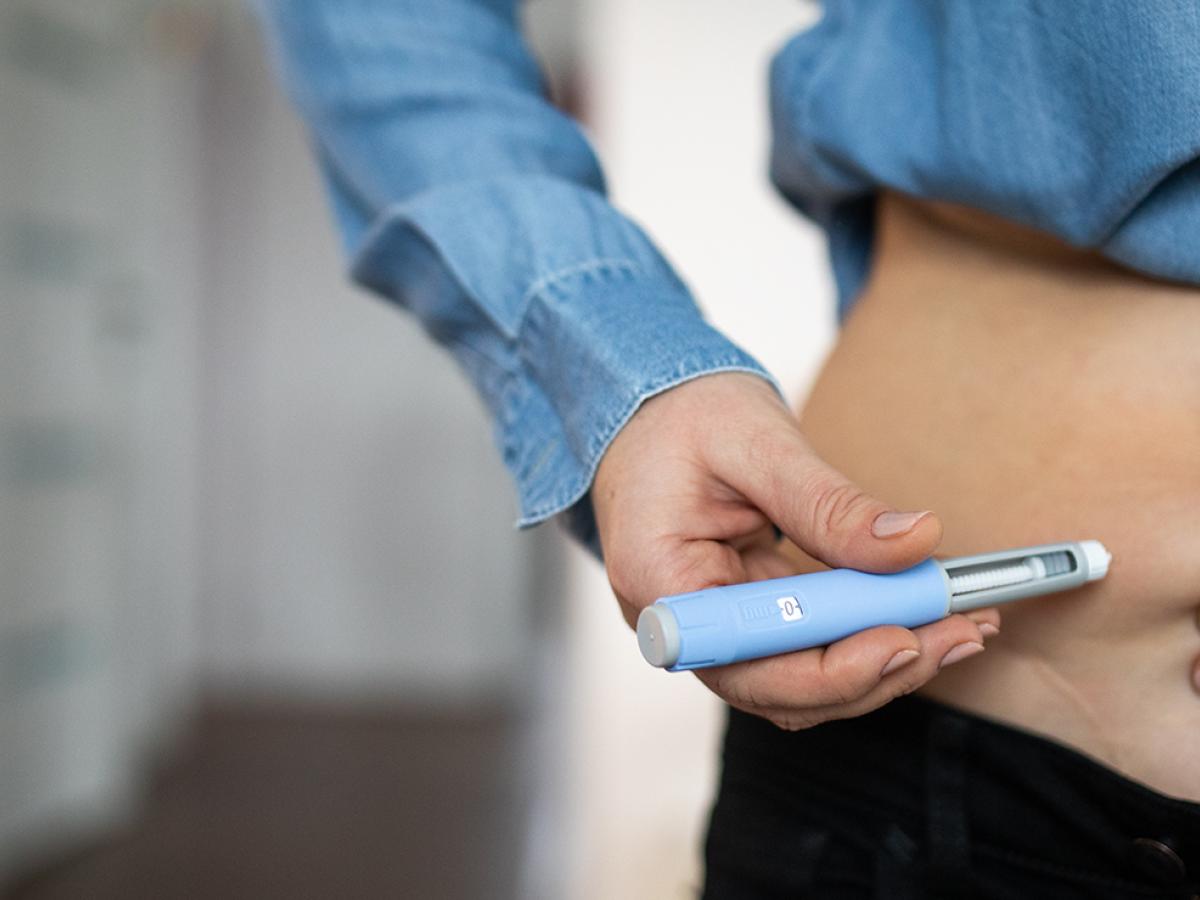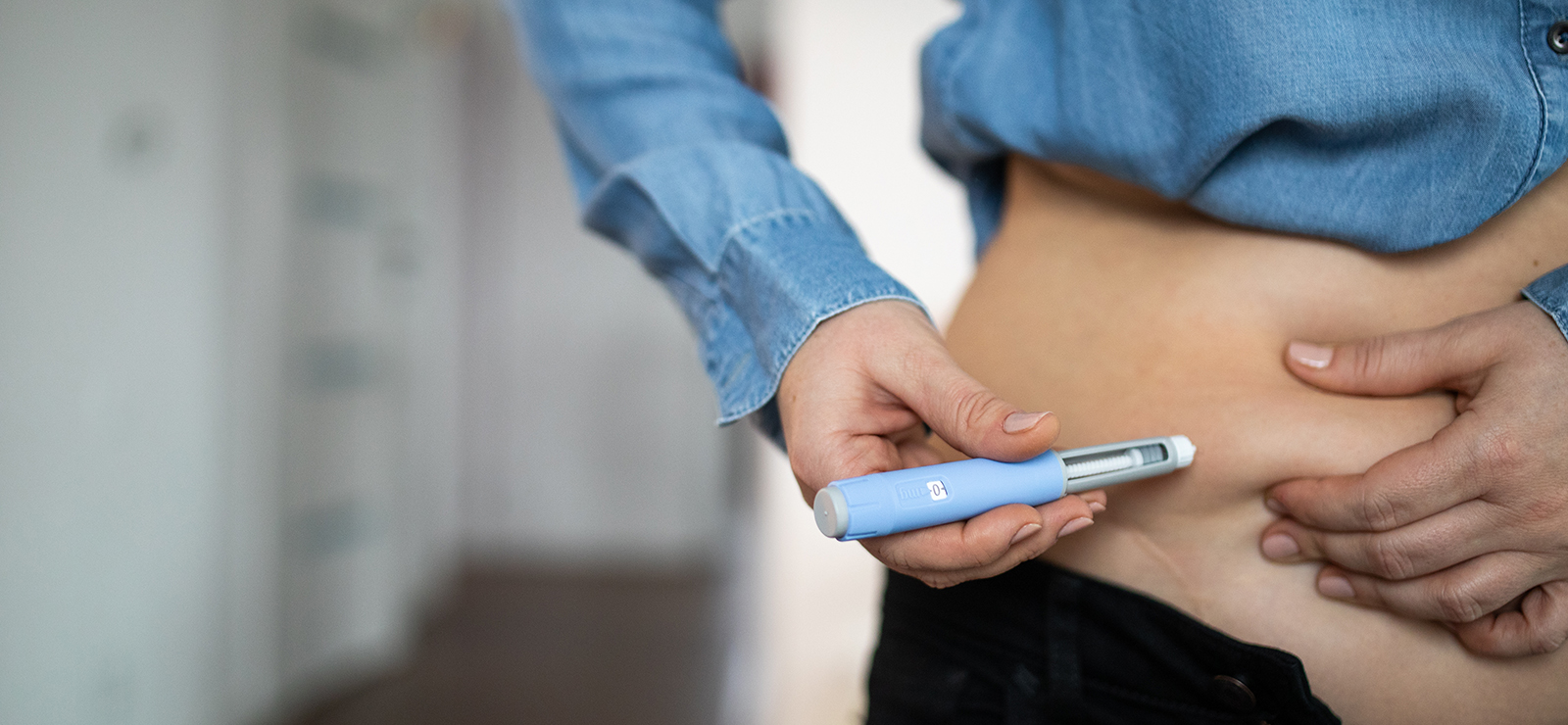September 24, 2025

If you've spent any time on social media lately, you may have noticed a new weight loss trend. Everyone from influencers to online health companies seems to be advertising the benefits of microdosing GLP-1 weight loss medications — taking smaller doses than are typically prescribed.

The idea may sound enticing — get the benefits with fewer side effects and lower cost, right? But once again, not everything on social media is as it seems.
"The FDA regulates brand-name GLP-1 drugs — such as semaglutide (Wegovy, Ozempic) and tirzepatide (Mounjaro, Zepbound) — and approves those drugs in very specific doses," says Katy Williams, MD, an MU Health Care family medicine doctor and bariatric medicine specialist. "With microdosing, you take a dose below the lowest approved dosage and may progress at a different pace than what's recommended."
To help you wade through the noise and make an informed decision about microdosing GLP-1s, we asked Dr. Williams to share her thoughts — and the facts.
Here's what we learned about five claims you might be hearing about microdosing GLP-1s:
Myth #1: Microdoses Are Simply Smaller Doses of FDA-Approved GLP-1 Drugs
FDA-approved GLP-1 medications come in prepackaged and prefilled syringes — each syringe contains one prescribed dose. Breaking that medicine into smaller doses would make it hard to measure a consistent dose and increases your risk of infection (from reusing the syringe).
To create smaller doses, the medication is compounded — custom-made and prepared by a licensed pharmacist or physician. Since compounded medication is not produced by the manufacturer in dosages that have been clinically tested, it's not FDA-approved.
"We cannot endorse the safety or efficacy of those compounding pharmacies because they are not regulated," Dr. Williams says. "Best case scenario: It's the same drug and same formulation. Worst case scenario: You aren't getting what you think you are, at least not consistently."
Myth #2: Microdosing Weight Loss Drugs Can Be a Temporary Tool to Help You Build Healthy Habits
It sounds ideal — you take small doses of a medicine to stop the food noise and cravings while you learn to eat healthier and exercise regularly. When you stop microdosing, you'll have the willpower and habits to keep the weight off.
The problem, according to Dr. Williams, is that the second you remove the tool (GLP-1 medication), you'll go right back to feeling hungry and craving unhealthy foods. The part of our brain that controls our body weight (hypothalamus) notices any weight loss as starvation and unconsciously works via hormonal signaling to increase hunger and food cravings and decrease calorie burn to get your weight (specifically fat) back to where it was prior to weight loss.
"When the medication is no longer regulating your GLP-1 hormone, your willpower likely won't be strong enough to control the hunger you'll feel when your brain is trying desperately to save you from starving," Dr. Williams says. "When people take this medicine and lose 10 pounds and then stop taking it, we are seeing a gradual regaining of the weight almost every single time. If you want to maintain weight loss, this is a lifelong medication."
Myth #3: Microdosing Is a Great Option If You Don't Have Much Weight to Lose
GLP-1 drugs — in the approved dosage and formulation — are proven to help with weight loss. They mimic the effects of the natural hormone (GLP-1) that regulates appetite, digestion and blood sugar levels. But, like all medications, FDA-approved GLP-1s have risks and benefits.
"The benefits seem to outweigh the risks when you have moderate to severe obesity," Dr. Williams says. "Losing 5% to 15% of your body weight can have significant health benefits. But if you are overweight or have mild obesity without associated diseases, the risks may or may not outweigh the benefits. It would need to be a personalized decision based on the individual patient."
If you are looking to lose less than 5% of your body weight, she says making lifestyle changes is a less-risky option that is proven to be effective.
"Work on your lifestyle first," Dr. Williams says. "Your doctor or a weight loss specialist will absolutely be able to find places where you can make meaningful lifestyle changes that can result in 5 to 10 pounds of weight loss."
Myth #4: Microdosing GLP-1 Has Health Benefits Beyond Weight Loss
Researchers have found regulating the GLP-1 hormone can help with insulin sensitivity and has other metabolic benefits. Dr. Williams adds that new studies are uncovering benefits involving other chronic diseases, such as heart disease, Type 1 diabetes and polycystic ovary syndrome (PCOS).
The catch is only the FDA-approved drugs and doses have been studied.
"There are some really amazing benefits to these drugs," Dr. Williams says. "But whether we're going to see the benefit at low doses remains to be seen. No one really knows at this point."
If you are only microdosing for the possible metabolic benefits, Dr. Williams says to instead consider lifestyle changes that can achieve those same benefits.
"We all want a quick and easy fix, but remember that food, movement, community and sleep are all forms of medicine," she says. "Those things are more powerful drivers of our hormone regulation than small doses of GLP-1 medication."
Myth #5: Getting a Prescription for Microdosing GLP-1 Online Is No Different Than Getting One From Your Primary Care Provider
You can get a prescription for compounded GLP-1s online from a licensed provider, and that provider may be an excellent physician with wonderful intentions. But most likely, they aren't someone who knows your health history and medications.
GLP-1s, in any dosage, can interact with other medications, such as blood thinners and hormonal birth control. When you take a lifelong medication, you should also be closely monitored by a doctor who understands your health journey.
These medicines should not be prescribed without intensive lifestyle changes, notes Dr. Williams. Before taking GLP-1s, there also needs to be in-depth conversations about what you're signing up for, the risks and benefits, and the long-term plan for treatment.
"GLP-1s are beautiful tools when used in the right way for the right patient, but not everyone is the right patient," Dr. Williams says. "In the future, we may have more data on lower doses. But until we have that information, we shouldn't experiment with patients outside of a research setting."
Next Steps and Useful Resources
- Want to discuss your weight loss options more? Speak with a primary care provider.


